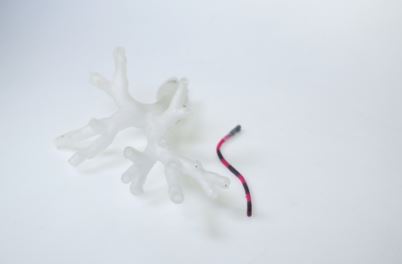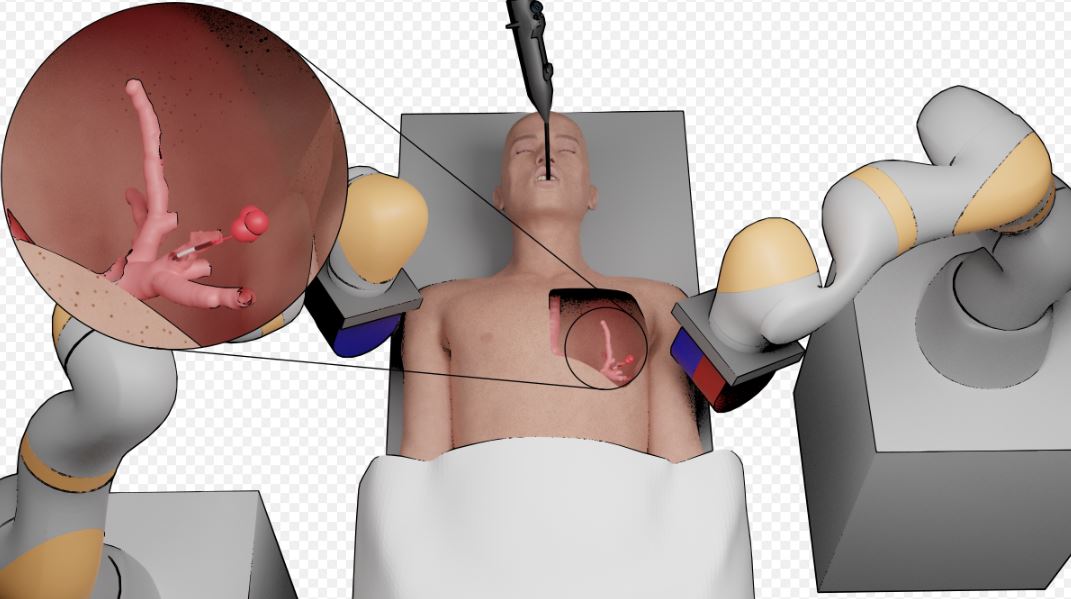TINY robots that fit inside the lungs could be used for cancer surgery, say scientists.
A 2mm-thick magnetic “tentacle” developed at the University of Leeds can reach 37 per cent deeper inside the narrow airways than standard tools, a study found.

Lung cancer is one of the deadliest forms of the disease
Dr Giovanni Pittiglio said: “Our goal is to bring curative aid with minimal pain for the patient.”
They have only tested it on dead bodies so far but hope to start trials in living patients.
Lung cancer is one of the deadliest forms of the disease and kills 35,000 Brits a year.
Surgery is the standard treatment but ops can destroy healthy lung tissue and cause long-term damage and complications.
The researchers hope their tiny worm-like device could help surgeons to target and destroy tumour cells while leaving other tissue unharmed.
Dr Pietro Valdastri, research supervisor, said: “This new approach has the advantage of being specific to the anatomy, softer than the tissue and fully-shape controllable via magnetics.
“These three main features have the potential to revolutionise navigation inside the body.”
The device is made of silicone to keep it soft, with metal inside so it can be steered with magnets outside the body.

The robot is bendy and worm-like to help it navigate the narrow airways inside the lungs

It is fed into the lung then controlled by magnets on the outside of the body
Writing in the journal Nature Engineering Communications, they said the gadget could also be fitted with a camera to show what is happening in the body in real time.
Lung screening is being ramped up in the UK in a bid to catch the disease earlier.
All smokers aged 55 to 74 will be invited for free NHS scans and help with kicking the habit.
Those deemed at high risk will be given specialist scans every two years.
Mobile screening units in car parks will be part of a plan to catch 9,000 more cases early each year.
Health Secretary Steve Barclay said: “I am determined to combat cancer on all fronts through better prevention, detection, treatment and research.”






